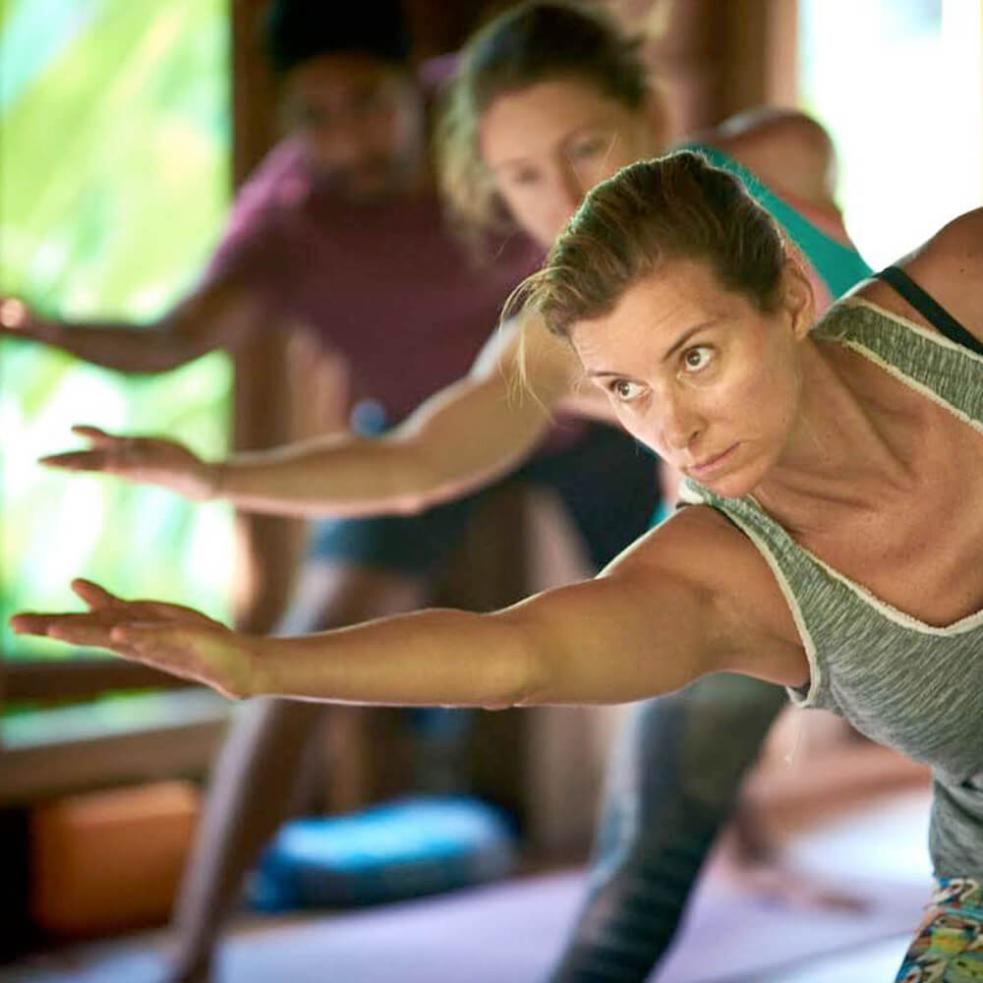How Do I Choose the Right Yoga Retreat for My Needs as a Dentist?
In today's fast-paced world, dentists often find themselves facing high levels of stress and burnout. Yoga retreats offer a unique opportunity for dentists to escape the daily grind, recharge their batteries, and reconnect with their inner selves. But with so many yoga retreats available, choosing the right one can be a daunting task.

Definition Of Yoga Retreat
A yoga retreat is a structured program that combines yoga practices with other activities such as meditation, hiking, and massage. These retreats are typically held in serene and natural settings, providing participants with an immersive experience that promotes relaxation and rejuvenation.
Benefits Of Yoga Retreats For Dentists
Yoga retreats offer a multitude of benefits for dentists, including:
Stress Reduction
Yoga and meditation have been shown to reduce stress and anxiety levels, promoting a sense of calm and well-being.
Improved Flexibility And Mobility

Regular yoga practice can improve flexibility and mobility, reducing the risk of musculoskeletal pain and injuries.
Enhanced Mindfulness And Focus
Yoga teaches participants to focus on the present moment, improving their mindfulness and concentration.
Increased Energy Levels

Yoga can boost energy levels by stimulating the body's natural energy pathways.
Deeper Connection With Self And Nature
Yoga retreats provide an opportunity to disconnect from the digital world and reconnect with one's inner self and the surrounding nature.
Considerations For Choosing The Right Yoga Retreat
When choosing a yoga retreat, dentists should consider the following factors:
Location
- Proximity to home or work: Consider the travel time and cost to reach the retreat center.
- Climate and weather conditions: Choose a retreat location with a climate that suits your preferences and health needs.
- Accessibility and transportation options: Ensure that the retreat center is easily accessible by car, train, or plane.
Duration
- Short retreats (2-3 days): Ideal for those who have limited time or are new to yoga retreats.
- Medium retreats (4-7 days): Provide a more immersive experience and allow for deeper exploration of yoga and meditation practices.
- Long retreats (8 days or more): Offer the most comprehensive experience and are suitable for experienced yogis who seek a transformative journey.
Cost
- Budget considerations: Yoga retreats can vary significantly in price. Set a budget and look for retreats that offer value for money.
- Value for money: Consider the retreat's amenities, activities, and overall experience when evaluating its cost.
Accommodation
- Shared rooms vs. private rooms: Decide whether you prefer to share a room with other participants or have your own private space.
- Amenities and facilities: Consider the retreat center's amenities, such as comfortable beds, clean bathrooms, and access to Wi-Fi.
Food And Dietary Needs
- Vegetarian or vegan options: If you have dietary restrictions, ensure that the retreat center offers suitable meal options.
- Special dietary restrictions: Inform the retreat center about any specific dietary restrictions or allergies you have.
Yoga Style And Intensity
- Hatha yoga: A gentle and beginner-friendly style of yoga that focuses on physical postures and breathing.
- Vinyasa yoga: A more dynamic style of yoga that synchronizes movement with breath.
- Ashtanga yoga: A vigorous and physically demanding style of yoga that follows a set sequence of postures.
- Yin yoga: A slow-paced and restorative style of yoga that focuses on holding poses for extended periods.
- Restorative yoga: A deeply relaxing style of yoga that uses props to support the body in comfortable positions.
Level Of Experience
- Beginner-friendly retreats: Suitable for those who are new to yoga or have limited experience.
- Intermediate or advanced retreats: Designed for experienced yogis who are looking to deepen their practice.
Additional Activities And Workshops
- Meditation: Many yoga retreats offer guided meditation sessions to help participants cultivate mindfulness and inner peace.
- Hiking: Some retreats incorporate hiking excursions into their programs, providing an opportunity to connect with nature and enjoy the surrounding scenery.
- Massage: Massage sessions can be a great way to relax and rejuvenate the body after a day of yoga and meditation.
- Cooking classes: Some retreats offer cooking classes that teach participants how to prepare healthy and delicious meals.
- Cultural excursions: Certain retreats may include cultural excursions to local temples, historical sites, or natural wonders.
Tips For Choosing The Right Yoga Retreat
- Research and read reviews: Read online reviews and testimonials from previous participants to get an idea of the retreat's quality and atmosphere.
- Contact the retreat center directly: Reach out to the retreat center directly to ask any specific questions you may have about the program, accommodations, or dietary options.
- Consider your personal preferences and needs: Reflect on your individual needs and preferences when choosing a retreat. Consider factors such as the style of yoga, the level of intensity, and the types of additional activities offered.
- Be open to new experiences: Yoga retreats are an opportunity to step out of your comfort zone and try new things. Be open to trying different yoga styles, meditation techniques, and activities.
Recap Of The Key Considerations
When choosing a yoga retreat, dentists should consider the following key factors:
- Location: Proximity, climate, and accessibility.
- Duration: Short, medium, or long retreats.
- Cost: Budget and value for money.
- Accommodation: Shared or private rooms, amenities.
- Food and Dietary Needs: Vegetarian or vegan options, special restrictions.
- Yoga Style and Intensity: Hatha, Vinyasa, Ashtanga, Yin, Restorative.
- Level of Experience: Beginner-friendly or intermediate/advanced.
- Additional Activities and Workshops: Meditation, hiking, massage, cooking classes, cultural excursions.
Encouragement To Explore Yoga Retreats As A Means Of Self-Care And Rejuvenation For Dentists
Yoga retreats offer dentists a unique opportunity to escape the daily grind, recharge their batteries, and reconnect with their inner selves. By choosing a retreat that aligns with their individual needs and preferences, dentists can embark on a transformative journey that promotes stress reduction, improved flexibility and mobility, enhanced mindfulness and focus, increased energy levels, and a deeper connection with self and nature.
If you are a dentist who is looking for a way to rejuvenate and revitalize your mind, body, and spirit, consider exploring yoga retreats as a means of self-care and rejuvenation.
YesNo

Leave a Reply